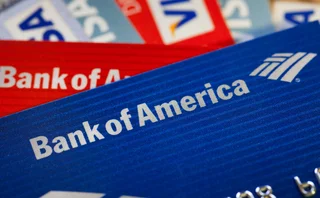Börse Berlin Acquires Equiduct
The deal, set to close Tuesday, Sept. 25, will give Equiduct a capital injection to fund its future growth strategy.
Exchange officials decline to comment on the upcoming deal.
Börse Berlin will continue to run Equiduct's operations from London, although the company will fall under German regulatory jurisdiction. As a result, the market's underlying technology will still be hosted in London, and a datacenter hosting and connectivity contract signed recently with BT Global Financial Services will therefore not be affected. "All the cables from the European exchanges come out in London-that's where the biggest market is," says Equiduct CEO Bob Fuller.
Although Equiduct will continue to be run from London, the new ownership structure will prompt some management changes. Fuller will step down at the end of October when his contract comes to an end, though current COO Willy Van Stappen and CIO Rob Brouwer are expected to take on senior roles at the newly combined group. President and founder Jos Peeters will also keep a stake in the company, Fuller says.
While expressing regret at leaving the company, Fuller says the deal should be positive for the market as a whole, and will form a key component of Berlin's European strategy.
Validation
A source from the soon-to-be-combined company says the exchange views the E.U.'s Markets in Financial Instruments Directive (Mifid) and the chance to acquire Equiduct as a once-in-a-lifetime opportunity that the exchange is looking to fully exploit. Since the regional German exchanges operate on the same systems, market model and connectivity, the deal will allow Börse Berlin to differentiate itself, both by technology and by the products it offers, says the source.
The source also validates Equiduct's focus on capturing cross-border investment flows, which are likely to increase as a result of Mifid. "To create liquidity by taking it away from others is more difficult than to enable liquidity where previously the barriers were too high," the source says.
The original backer of the pan-European exchange announced in November 2006 that the new bourse would be powered by a modified version of the European Trading System (ETS) that has been adapted to Mifid's guidelines. The exchange licensed ETS from the European Association of Securities Dealers Automated Quotation (Easdaq) (DWT, Nov. 6, 2006).
One of the features that attracted the German exchange's interest was Equiduct's virtual best bid and offer (VBBO) consolidated feed for instruments traded on multiple markets, says the source. Equiduct chose the most difficult-but the best-approach to creating best price information, the source adds.
To create the VBBO, Equiduct plans to aggregate market data feeds from all relevant reference markets and apply the appropriate currency exchange rates to produce a consolidated order book represented in a single currency-the euro-as well as each stock's local currency.
A lot of work required to build the VBBO feed is already complete, sources say. "We have feed handlers, we're currently testing it all," says Equiduct's Fuller.
The Berlin exchange views the VBBO as a very powerful tool that will act as a benchmark for its market-makers. "We calculate the theoretical price and our market-maker is then committed to executing a client order at that price," Fuller adds. Börse Berlin will not only look to German market makers to support this model, but also hopes to attract interest from the London market.
Jean-Paul Carbonnier
Only users who have a paid subscription or are part of a corporate subscription are able to print or copy content.
To access these options, along with all other subscription benefits, please contact info@waterstechnology.com or view our subscription options here: http://subscriptions.waterstechnology.com/subscribe
You are currently unable to print this content. Please contact info@waterstechnology.com to find out more.
You are currently unable to copy this content. Please contact info@waterstechnology.com to find out more.
Copyright Infopro Digital Limited. All rights reserved.
As outlined in our terms and conditions, https://www.infopro-digital.com/terms-and-conditions/subscriptions/ (point 2.4), printing is limited to a single copy.
If you would like to purchase additional rights please email info@waterstechnology.com
Copyright Infopro Digital Limited. All rights reserved.
You may share this content using our article tools. As outlined in our terms and conditions, https://www.infopro-digital.com/terms-and-conditions/subscriptions/ (clause 2.4), an Authorised User may only make one copy of the materials for their own personal use. You must also comply with the restrictions in clause 2.5.
If you would like to purchase additional rights please email info@waterstechnology.com
More on Trading Tech
After acquisitions, Exegy looks to consolidated offering for further gains
With Vela Trading Systems and Enyx now settled under one roof, the vendor’s strategy is to be a provider across the full trade lifecycle and flex its muscles in the world of FPGAs.
Enough with the ‘Bloomberg Killers’ already
Waters Wrap: Anthony interviews LSEG’s Dean Berry about the Workspace platform, and provides his own thoughts on how that platform and the Terminal have been portrayed over the last few months.
BofA deploys equities tech stack for e-FX
The bank is trying to get ahead of the pack with its new algo and e-FX offerings.
Pre- and post-trade TCA—why does it matter?
How CP+ powers TCA to deliver real-time insights and improve trade performance in complex markets.
Driving effective transaction cost analysis
How institutional investors can optimize their execution strategies through TCA, and the key role accurate benchmarks play in driving more effective TCA.
As NYSE moves toward overnight trading, can one ATS keep its lead?
An innovative approach to market data has helped Blue Ocean ATS become a back-end success story. But now it must contend with industry giants angling to take a piece of its pie.
BlackRock, BNY see T+1 success in industry collaboration, old frameworks
Industry testing and lessons from the last settlement change from T+3 to T+2 were some of the components that made the May transition run smoothly.
Banks seemingly build more than buy, but why?
Waters Wrap: A new report states that banks are increasingly enticed by the idea of building systems in-house, versus being locked into a long-term vendor contract. Anthony explores the reason for this shift.







